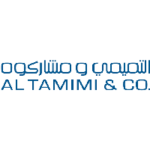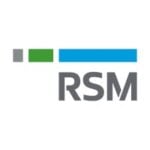-
What are the relevant government entities relating to immigration in your jurisdiction?
Immigration (labour) law in general is administered by municipal authorities, the Austrian consular missions as well as the Labour Market Authority. Further, a special authority exists in the form of the Financial Police, responsible for controlling the compliance of foreigners working in Austria. The Federal Agency for Immigration and Asylum is responsible for asylum matters and return decisions. The Anti-Fraud-Office controls the prevention of salary and social dumping.
-
What are the options available for sponsor-based employment in your jurisdiction and timelines involved in securing a work permit?
Austria distinguishes between “local hire” (employee will be employed by the sponsor) and “posting” (the employee will be posted from a foreign employer to an Austrian receiving company which has to provide the work permit). Both categories are considered as “sponsor-based” work permits.
The following are Austria’s most common sponsor-based permits:
Local Hire – Red-White-Red Card
The Red-White-Red Card is a combined work and residence permit for third-country nationals (applicants who are not EU/EEA/Swiss citizens). This permit is employer linked and therefore does not allow free access to the labour market.
Red-White-Red Cards are obtainable for different types of employees:
- highly qualified workers;
- skilled workers in a shortage occupation;
- other key employees;
- graduates of an Austrian university or higher education college;
General requirements for all categories are:
- adequate means of subsistence – applicants are required to generate personal income which is sufficient to cover the living costs in Austria. The following net amounts must be available: EUR 1,273.99 for singles; EUR 2,009.85 for couples; and EUR 196.57 for each child (these figures are applicable for the calendar year 2025);
- all-risk health insurance cover – locally hired employees are insured through the public social insurance system. Such insurance cover provided by the public social insurance system is sufficient;
- adequate accommodation – the principal must provide an intended residence address and the dependants must provide a proof of accommodation (eg, rent agreement); and
- minimum remuneration compliance – the applicant’s salary must meet the minimum remuneration requirements as determined by the applicable collective bargaining agreement. In case of a Red-White-Red Card for other key employees, an additional card-related minimum remuneration requirement is applicable (see below).
The Red-White-Red Card for highly qualified workers can be obtained by applicants who obtain at least 70 out of 100 available credit points: up to 40 points are awarded for special qualifications and skills (especially for candidates with a university degree in mathematics, IT, natural sciences or technology, post-doctoral or equivalent qualification); up to 20 points are awarded to work experience (reflecting the applicant’s qualifications); up to ten points are awarded for language skills (German, English, French, Spanish, Bosnian, Croatian, Serbian); up to 20 points are awarded for age; up to ten points are awarded if the applicant has completed studies in Austria. The permit can be issued with an initial validity period of up to two years. Provided that the applicant is working for at least 21 full months, at the extension stage an upgrade to the unsponsored Red-White-Red Plus Card is possible, which allows free access to the labour market.
Shortage occupations are determined and published year by year in a regulation. There are Austrian-wide shortage occupations and shortage occupations applicable to the single regions. The Red-White-Red Card for skilled workers in a shortage occupation can be obtained by applicants who obtain at least 55 out of 90 available credit points: up to 30 points are awarded in case of a completed vocational education in the shortage occupation; up to 20 points are awarded to work experience (reflecting the applicant’s qualifications); up to 25 points are awarded for language skills (German, English, French, Spanish, Bosnian, Croatian, Serbian); up to 15 points are awarded for age. Special credit points (five) are available if English is the predominant working language of the future employer, provided that the candidate is able to prove English language skills. The permit can be issued with an initial validity period of up to one year. Provided the applicant is working for at least 21 full months, at the extension stage an upgrade to the unsponsored Red-White-Red Plus Card is possible, which allows free access to the labour market.
The Red-White-Red Card for other key employees can be obtained by applicants who obtain at least 55 out of 90 available credit points: up to 30 points are awarded for a qualification; up to 20 points are awarded for work experience (the work experience does not have to be linked to the qualification); up to 25 points are awarded for language skills (German, English, French, Spanish, Bosnian, Croatian, Serbian); up to 15 points are awarded for age. Special credit points (five) are available if English is the predominant working language of the future employer, provided that the candidate is able to prove English language skills. For professional athletes and professional sports coaches, 20 bonus points are available. In addition to the minimum remuneration according to the applicable collective bargaining agreement, the applicant’s monthly gross salary (to be paid 14 times per year) must be at least EUR 3,225 (figure valid for 2025); if this figure is below the minimum remuneration amount determined by the applicable collective bargaining agreement, the respective higher amount must be paid. Applicants for this type of residence permit have to undergo a labour market replacement test. The permit can be issued with an initial validity period of up to two years. Provided that the applicant is working for at least 21 full months, at the extension stage an upgrade to the unsponsored Red-White-Red Plus Card is possible, which allows free access to the labour market.
The Red-White-Red Card for graduates of an Austrian university or higher education college is not linked to a credit point system. A labour market replacement test is not required. The permit can be issued with an initial validity period of up to two years. Provided that the applicant is working for at least 21 full months, at the extension stage an upgrade to the unsponsored Red-White-Red Plus Card is possible, which allows free access to the labour market.
Dependant family members can accompany the third-country national; unless they hold a university degree or a high school graduation which allows university access, German language requirements apply for dependants. Dependants receive a permit in the form of a Red-White-Red Plus Card, which allows free access to the labour market.
Local Hire – Blue Card EU
The EU Blue Card is a combined residence and work permit, available for highly skilled local hires who meet a high salary threshold. A third-country national can apply for a Blue Card EU, if the applicant has completed university studies or other tertiary education with a minimum duration of three years. For applicants in the area of information and communications technologies (job codes 133 or 25 ISCO-08-classification), the proof of at least three years of relevant professional experience is sufficient and replaces the university degree, if the experience is comparable to a university degree with at least three years of study and has been acquired within the last seven years prior to the application.
Applicants are required to obtain a binding job offer for at least six months and the employment must have a link to the education and qualifications of the applicant. The card-related annual minimum gross salary amounts to EUR51,500(annual salary and special payments-figure valid for 2025).
Applicants for this type of residence permit have to undergo a labour market replacement test. The permit can be issued with an initial validity period of up to two years. Provided that the applicant is working for at least 21 full months, at the extension stage an upgrade to the unsponsored Red-White-Red Plus Card is possible, which allows free access to the labour market.
Dependant family members can accompany the third-country national; unless they hold a university degree or a high school graduation which allows university access, German language requirements apply after a residence permit in Austria of two years. Dependants receive a permit in the form of a Red-White-Red Plus Card which allows free access to the labour market.
Local Hire – Confirmation Certificate for Volunteers
Volunteers are third-country nationals who are employed for up to three months per calendar year exclusively for the purpose of expanding and applying knowledge for the acquisition of practical skills without any obligation to work and without any entitlement to remuneration and who do not perform unskilled work, simple semi-skilled work or work on construction sites.
Third-country nationals who are employed as volunteers do not require a work permit. However, the employment must be reported by the employer to the competent regional labour office and the Central Co-ordination Office for the Control of Illegal Employment at least three weeks prior to commencement. The competent labour office must issue a Confirmation Certificate within two weeks. After expiry of this period, the employment may be taken up before the confirmation of notification has been issued. If the issuance of the Confirmation Certificate is rejected after the expiry of the initial period of two weeks, an already started employment must be terminated immediately, at the latest, however, within one week after delivery of the rejection order.
In addition to the Confirmation Certificate, the applicant requires a working visa or a residence permit which allows the applicant to reside in Austria. Thereafter, the applicant can start working.
Local Hire – Confirmation Certificate for Holiday/Professional Trainees
Holiday/professional trainees are students who perform an activity prescribed within the framework of a regulated course of instruction or study at a domestic educational institution under public law.
Third-country nationals who are employed as holiday/professional trainees do not require a work permit. However, the employment must be reported by the employer to the competent regional labour office and the Central Co-ordination Office for the Control of Illegal Employment at least three weeks prior to commencement. The competent labour office must issue a Confirmation Certificate within two weeks. After expiry of this period, the employment may be taken up before the confirmation of notification has been issued. If the issuance of the Confirmation Certificate is rejected after the expiry of the initial period of two weeks, an already started employment must be terminated immediately, at the latest, however, within one week after delivery of the rejection order.
In addition to the Confirmation Certificate, the applicant requires a working visa or a residence permit which allows the applicant to reside in Austria. Thereafter, the applicant can start working.
Local Hire – Confirmation Certificate for Trainees
This permission applies to trainees within the meaning of Directive (EU) 2016/801 on the conditions of entry and residence of third-country nationals for the purposes of research, studies, traineeships, voluntary service, pupil exchange programmes or educational projects and au pair work (Researcher and Student Directive). For this purpose, the term “trainee” means foreign nationals who are pursuing studies leading to a higher education qualification in a third country or have obtained a higher education qualification not more than two years ago and are employed under a study-related traineeship agreement with a host institution at an appropriate level of qualification for a period of 91 to 180 days to acquire knowledge, practical skills and experience in a professional environment.
Third-country nationals who are employed as trainees do not require a work permit. However, the employment must be reported by the employer to the competent regional labour office and the Central Co-ordination Office for the Control of Illegal Employment at least three weeks prior to commencement. The competent labour office must issue a Confirmation Certificate within two weeks. After expiry of this period, the employment may be taken up before the confirmation of notification has been issued. If the issuance of the Confirmation Certificate is rejected after the expiry of the initial period of two weeks, an already started employment must be terminated immediately, at the latest, however, within one week after delivery of the rejection order.
In addition to the Confirmation Certificate, the applicant requires a working visa. Once the Confirmation Certificate and the working visa have been obtained, the applicant can start working.
Local Hire – Project Workers
A third-country national who is to be temporarily employed as a specialist in the course of a specific project for a period not exceeding six months, is eligible to obtain a work permit. In this context the term “specialist” means an employee who has indispensable, specialised knowledge and a high level of qualification for specific work or activities with specific technical knowledge, including appropriate professional experience.
In addition to the work permit, the applicant requires a working visa. Once the work permit and the working visa have been obtained, the applicant can start working.
Local Hire – Researcher
To obtain a residence permit as researcher, an admission agreement with a certified research facility or a research facility which does not require certification according to the Austrian Residence and Settlement Act is required. For researchers there is no need to obtain an additional work permit.
The residence title “Settlement Permit – researchers” shall be issued for the total duration of two years. Thereafter, a switch to the unsponsored title Red-White-Red Plus card is possible.
Local Hire – Special Cases of Dependant Gainful Employment
For certain special cases of employment in Austria, the residence permit “Special Cases of Dependant Gainful Occupation” can be obtained.
This permit applies, for example, to foreign media respondents, university professors or teachers at international schools. This permit also applies to so-called “Special Managers”, who are third-country nationals who hold executive positions at the board or management level in internationally active groups of companies or are internationally recognised researchers and whose employment serves to develop or expand sustainable economic relations or to create or secure qualified jobs in Austria and who consistently receive a monthly gross remuneration of at least 120% of the maximum contribution basis pursuant to Section 108 paragraph 3 of the Austrian General Social Insurance Act (ASVG) plus special payments (for 2025: at least EUR 7,740 gross/month).
Local Hire or Posting – ICT Permit
The Intra-Company-Transferee (ICT) Permit is a combined work and residence permit available for managers, specialists or trainees seconded to a European country by their non-EU-based employer. The foreign seconding employer and the Austrian receiving company must belong to the same group of companies.
“Manager” refers to an executive who heads the receiving branch or a division or subdivision of that branch and is mainly under the general supervision of, or receives general instructions from, the management body or shareholders or equivalent persons of the transferring company, group of companies or branch. It is a requirement that the applicant belongs to the group of companies for an uninterrupted period of at least nine months. For this category, the permit is issued with an initial validity of 12 months; it can be extended for a total period of three years.
“Specialist” refers to an employee possessing indispensable, specialised knowledge of the receiving establishment’s fields of activity, procedures or management and a high level of qualification for specific work or activities with specific technical knowledge, including appropriate professional experience. It is a requirement that the applicant belongs to the group of companies for an uninterrupted period of at least nine months. For this category, the permit is issued with an initial validity of 12 months; it can be extended for a total period of three years.
“Trainee” is an employee holding a university degree who is being supported in their professional development or is undergoing sector-specific, technical or methodological training. It is a requirement that the applicant belongs to the group of companies for an uninterrupted period of at least six months. For this category, the permit can have a maximum validity period of one year.
It is essential that the applicants have their residence and employment outside the European Union.
Dependant family members can accompany the foreign principal.
If the ICT candidate is posted into Austria, during the posting, document-keeping requirements apply to show compliance with the minimum remuneration requirements.
Posting – Training Permit
Third-country nationals who are:
- posted by their foreign employer within the framework of a joint venture and on the basis of an in-company training programme for no longer than six months for in-company training in a company with its place of business in Austria the Federal territory;
- posted within the framework of an internationally active group of companies on the basis of a qualified group-internal training and further training programme from a foreign group company for no longer than 50 weeks to the headquarters located in Austria; or
- are seconded by their internationally active employer as qualified employees assigned to the management, who are obliged to undergo internal training or further training (management trainees) and to rotate with regard to the place of employment to a branch office belonging to the same enterprise or to the same group of enterprises within Austria for a period of no longer than 24 months,
require a Training Certificate instead of a work permit. The training or further education measure must be notified by the owner of the domestic training enterprise (first bullet point above), the headquarters (second bullet point above) or the domestic branch (third bullet point above) to the competent labour office no later than two weeks prior to commencement, together with evidence of the joint venture agreement and the training programme or further education programme, in which the objectives, measures and duration of the training or education are specified. The training may only be started after (i) the Training Certificate and (ii) a respective working visa (for stays up to six months), respectively a residence permit (for stays exceeding six months) have been obtained.
During the posting, document-keeping requirements apply to show compliance with the minimum remuneration requirements, unless one of the several exemptions applies.
Posting – Short-Term Work Permit for Posting Purposes (Betriebsentsandter)
Third-country nationals who are engaged in Austria by an employer based outside the EU/EEA/Switzerland for up to six months require a work permit and a working visa. The engagement can start once the work permit and the working visa have been obtained. Certain exemptions apply for certain short-term business meetings not exceeding three to four days and for citizens of countries with which Austria/the European Union have entered into trade and co-operation agreements. During the posting, document-keeping requirements apply to show compliance with the minimum remuneration requirements.
Posting – Long-Term Work Permit for Posting Purposes (Betriebsentsandter)
Third-country nationals who are engaged in Austria by an employer based outside the EU/EEA/Switzerland for more than six months require a work permit and a residence permit. The engagement can start once the work permit and the residence permit have been obtained. During the posting, document-keeping requirements apply to show compliance with the minimum remuneration requirements.
Posting – Intra-EU Mobility of EU/EEA/Swiss Nationals Employed by an Undertaking Based in the EU/EEA/Switzerland
EU/EEA/Swiss nationals posted from an employer based in the EU/EEA/Switzerland into Austria require a so-called posted worker notification (ZKO declaration). During the posting, document-keeping requirements apply to show compliance with the minimum remuneration requirements.
Posting – Intra-EU Mobility of Third-Country Nationals Employed by an Undertaking Based in the EU/EEA/Switzerland
Third-country nationals posted from an employer based in the EU/EEA/Switzerland into Austria require a so-called posted worker notification (ZKO declaration). In addition to the posted worker notification (ZKO declaration) an EU Secondment Declaration must be obtained from the labour authority and visa/residence permit requirements may be required, depending on the duration of the posting into Austria. During the posting, document-keeping requirements apply to show compliance with the minimum remuneration requirements.
Posting – ICT Short-Term Mobility
Third-country nationals holding an ICT permit issued by another member state of the European Union can be posted to Austria for a period of up to 90 days, provided that a so-called posted worker notification (ZKO declaration) has been filed. In addition to the posted worker notification (ZKO declaration) an EU Secondment Declaration must be obtained from the labour authority. During the posting, document-keeping requirements apply to show compliance with the minimum remuneration requirements.
Posting – Mobile ICT
Third-country nationals holding an ICT permit issued by another member state of the European Union can be posted to Austria for a period exceeding 91 days provided that a Mobile ICT permit has been applied for in due time.
Processing times vary between different immigration offices and types of applied residence permits. Generally, issuance of a residence permit in combination with a work permit requires a period of eight to 12 weeks calculated from the day the respective application was filed either at the Austrian Embassy or directly at the local immigration authority. This timeline does not include the time required for the preparation of the application package for the submission.
-
What are the primary options available for unsponsored work and investment in your jurisdiction?
Red-White-Red Card as self-employed persons or Start-Up Founders
Investors can apply for a Red-White-Red Card as self-employed persons or Start-Up Founders.
The investor category is designed for high-net-worth individuals intending to make a substantial financial investment (approx. EUR 100,000 or EUR 50,000 in case of start-ups) in Austria or a valuable contribution to the Austrian economy.
“Privatier” Residence permit (settlement permit except gainful employment)
Furthermore a “Privatier” residence permit is available. This residence permit entitles the holder to settle in Austria without access to the job market. This permit is granted on an annual quota basis, quota places are assigned on a first come first served basis starting at the beginning of the year.
The applicant must prove housing and a valid health insurance in Austria (covering all risks) as well as financial independence; the monthly reference rates to be fulfilled for the year 2025 are EUR 2,600 for singles, EUR 4,100 for couples and additional EUR 400 for each child.
Citizenship by extraordinary economic achievements
Individuals undertaking a notable investment may also receive Austrian citizenship (through a discretionary citizenship programme). This route is entirely dependent on the discretion of the Council of Ministers and is evaluated and only granted after a deep analysis of the effected – not only the planned – investments.
-
What are the requirements for becoming a sponsor of employment-based migrants and what are the role and reporting duties of sponsors?
There is no formal procedure to become a sponsor, but the sponsor needs to sign specific documents throughout the application process. The sponsor cannot be insolvent and should not have received any penalties due to illegal employment in the past 12 months.
After the employee has picked up the residence permit, the sponsor is required to submit proof to the immigration authorities, that the applicable salary and the social security contributions are paid. The sponsor is required to notify the authorities on the start and end date of the employment (within three days) and in case the nature of the job changes substantially no longer fulfilling the requirements for the employment.
-
Are applications filed electronically, or paper base? Is a physical visa/work permit document issued or is an electronic approval issued?
Applications for ICT and local hire residence permits are filed on paper base. A physical permit is issued in form of a credit-card style permit.
Work and short-term secondment permits must either be filed on paper base or through an online system (in case the sponsor has created a registration to do so). The Work and short-term secondment permit is issued physically on paper base.
-
Is an in-person attendance/interview required as part of the visa/work permit application process? Is an individual required to enrol their biometrics (digital photo, fingerprint scan) as part of the visa/work permit process?
For all residence permits, combined residence and work permits (e.g. Red-White-Red Cards) or a visa at least one in-person attendance is required; it is necessary to enrol the biometric data (i.e. fingerprints). Generally, these permits are collected personally. Work permits are issued without an in-person attendance and are send to the sponsoring Austrian entity via regular mail.
-
What persons qualify as dependants? Can dependants work based on their dependant visa status? Are there any restrictions?
The following dependants of holders of ICT permits, Red-White-Red-Cards or the Blue Card EU as well as dependants of Austrian citizens who have not made use of their EU freedom of movement rights, are eligible for a dependent permit:
- Legal, opposite- or same-sex spouse over the age of 21
- Registered opposite- or same-sex partner over the age of 21
- Children under 18, including adopted children (full legal adoption) and step-children (under full custody of the principal applicant, spouse or partner, or with consent from the non-traveling parent)
The following dependants (who are EU/EEA/Swiss nationals) of EU/EEA/Swiss nationals/Austrian nationals who made use of their EU freedom of movement rights are eligible for a dependent permit:
- Legal, opposite- or same-sex spouse
- Registered opposite- or same-sex partner
- Children up to 21 years
- Children over 21 who continue to be financially dependent, for instance, due to a disability or full-time studies
- De facto partner, in a stable and long relationship with the principal
- Relatives of the principal or his/her spouse or registered partner in the direct ascending line, provided that they are actually supported by them;
- Other family members if they are financially dependent on the principal applicant, or have lived in one household with the principal in the home country, or where serious health grounds strictly require the personal care of the principal
The following dependants (who are third-country nationals) of EU/EEA/Swiss nationals/Austrian nationals who made use of their EU freedom of movement rights are eligible for a dependent permit:
- Legal, opposite- or same-sex spouse
- Registered opposite- or same-sex partner
- Children up to 21 years
- Children over 21 who continue to be financially dependent, for instance, due to a disability or full-time studies
- Relatives of the principal or his/her spouse or registered partner in the direct ascending line, provided that they are actually supported by them;
Dependents of Red-White-Red Cards or EU Blue Card holders can receive the Red-White-Red Card plus, which grants full access to the Austrian labour market. Some dependants must proof German language skills (on an A1 level) upon application.
Dependants of ICT permit holders can receive a residence permit “Familiengemeinschaft” (“family reunion”), which allows the holder to carry out self-employed work; employed work is possible if they receive a binding job offer. No language skills are required for this permit.
Third country national dependants of Austrian nationals receive the residence permit “Familienangehöriger” (“family dependent”); those dependents are granted unlimited access to the job market. The permit is issued for the duration of one year. They must proof German language skills (on an A1 level) upon application.
Third country national dependants of EU/EEA/swiss nationals/Austrian who made use of their freedom of movement rights receive the residence permit “Aufenthaltskarte”; those dependents are granted unlimited access to the job market. This permit is issued for five years (or a shorter period, if the stay in Austria is planned for a shorter period). German skills are not necessary.
-
What is the general time frame and processes for obtaining permanent residence and citizenship for sponsored and unsponsored business-related immigration?
Third-country nationals are eligible for permanent residence in Austria after five years of continuous and lawful residence under an EU Blue Card, Red-White-Red Card or other permanent settlement permit; temporary residences based on an ICT permit or a permit as a seconded employee do only count half towards the five-year threshold. Generally, only the absence of up to six consecutive or 10 cumulative months is allowed. Furthermore, the applicant needs to have German language skills at level B1 integration and advanced knowledge of the fundamental values of legal and social system in Austria, sufficient financial funds, a valid health insurance (covering all risks), entitlement to an accommodation and must be no threat to law and order.
The permanent residence status entitles to unlimited settlement with unrestricted access to the labour market.
To qualify for Austrian Citizenship a continuous and lawful residence in Austria for ten years (general rule) is necessary. Furthermore, applicants need to have German language skills (level B1), shall not have received a residence ban or be subject to a procedure to terminate the residence in Austria, cannot be subject to an expulsion from Austria, a threat to law and order, frequent and serious administrative offences, a violation of Austrian interests. Applicants need to prove sufficient financial funds and pass a citizenship exam. Lastly, all applicants need to renounce their previous citizenship, as Austria does only allow dual citizenship in limited circumstances.
Under certain circumstances Austrian Citizenship can also be granted after six years of continuous and lawful residence in Austria (e.g. to persons with German language skills on level B2, EU/EWR citizens, persons married to Austrian citizens since 5 years, persons born in Austria, persons who are well integrated in Austria through personal engagement serving the general welfare, such as 3 years of voluntary/honorary commitment in a non-profit organisation or 3 years of exercising an occupation in the educational/social/health sector).
Persons who have achieved extraordinary achievements for the Republic of Austria can be granted citizenship without a residence in Austria and can also keep previous citizenships.
-
What productive type activities can a business visitor undertake and for how long?
Note that the definition of business visit is interpreted very strictly in Austria. Any form of productive work is excluded, so there are no productive type activities a business visitor can undertake.
Business visitors can carry out only a few activities, such as business meetings, visits to trade fairs and conferences, for a very limited duration of typically 3-5 business days. Other activities or business meetings exceeding the time frame require a work permit and visa for working purposes (this includes visa-free third country nationals).
-
Can remote work be carried out from your country?
There is no specific permit available for remote workers. Work permits generally allow to work at a specific business entity. The employee will not be permitted to work at another business premise not mentioned in the work permit application; it is however not mandatory to be present at this business entity all the time. If remote work is carried out from within Austria, the employee always needs to obtain an appropriate work permit (or combined work and residence permit), even though when working from home instead of the business entity.
Generally, remote work for Austrian employers is subject to the Austrian regulations on Home-Office work, which came into force in April 2021. The terms of regular home office shall be evidenced in a written contract.
-
Are there any productive work / revenue generating activities that can be carried out as a visitor and without the need for a work permit? If so, what activities and for how long?
The following two scenarios must be distinguished:
(i) Exemptions from Posted Worker Notifications regarding employees assigned to Austria from EU/EEA/Switzerland
Exemptions from filing a Posted Worker Notification regarding employees assigned to Austria for the following short-term activities for candidates posted by an employer based in the EU/EEA/Switzerland:
- Business meetings without the provision of further services;
- Participation in seminars and lectures without rendering further services;
- participation in trade fairs and trade fair-like events or the attendance at and participation in congresses and conferences;
- Participation in and handling of cultural events from the fields of music, dance, theatre or cabaret and comparable fields, which take place within the framework of a tour;
- Participation in and handling of international competitive events (international championships);
Furthermore, particular temporary intra-group postings are exempted from filing a Posted Worker Notification, if these activities do not last longer than two months in a calendar year:
- Research and development, holding of training course, planning of project work or
- Exchanging experience, providing operational advice, controlling or working in the area of Group departments responsible for several countries with a central controlling and planning function, or
- Delivery, commissioning (and related training), maintenance, service work and repair of machinery, equipment, and IT systems
The following activities do not require the filing a Posted Worker Notification:
- Training visits, if the training is to the mere benefit of the employer entity the trainee works for in the home country and no further work is carried out in Austria;
- for activities as mobile worker in the transport sector on transit
- if the employees´ monthly gross salary is above EUR 7,740
- secondments or assignments within the framework of exchange, training or research programs or as a seconded or assigned lecturer at universities
- delivery of goods by posted employees of the seller or lessor, as well as the collection of goods by posted employees of the buyer or lessee;
- activities that are essential for the commissioning and use of delivered goods and are carried out by posted employees of the seller or lessor with a small expenditure of time.
(ii) Exemptions for postings from a third country
The following activities do not require a work permit, if carried out for less than 5 days, provided national employees cannot carry out these activities:
- high level executive business meetings
- Participation in trade fairs and congresses and the-like events
- Please note that a few further exemptions may apply for employees posted by employer based in the UK, Canada and Japan.
-
Is there a remote work or nomad visa category in your jurisdiction? If not, how likely is it that this will be implemented in future?
Austria does not have a remote working permit in place. Remote workers are therefore considered as posted workers from an immigration perspective and this requires posted workers to apply for work permits and working visa (if the stay is up to six months) or residence permits (if the stay exceeds six months).
EU/EEA/Swiss nationals employed by an employer based in the EU/EEA/Switzerland do not require work permits in order to work remotely out of Austria.
-
How easy is it to switch visa categories/jobs/employer from within country? And/or if made redundant, can the individual regularise their stay in another capacity and what is the timeframe allowable?
The primary purpose of any residence permit must not be jeopardized: i.e. a holder of a Red-White-Red Card key employment should only be used in a key position. If the purpose of residence is to be changed during the stay in Austria, the authority in Austria must be informed immediately and the applicant needs to switch to another appropriate residence permit. A change of purpose is only possible if the third-country national fulfils the requirements for the new residence title. It can take up to several weeks for the authorities to process the application, during this time, the applicant can continue the stay and work under the conditions of this permit.
A switch of employers is always possible with a permit allowing free access to the labour market.
The Red-White-Red Card and the Blue Card EU only allow work to be carried out for the sponsoring Austrian entity. If the employer shall be switched the Red-White-Red Card needs to be approved by the authority regarding the new employer. If the candidate was employed under a Blue Card EU issued by Austria for a period of at least 12 months an immediate switch of employer start of employment is possible as of the day of change of scope application for the issuance of a new Blue Card EU for the new employer.
Only after holding these permits for two years, and an effective employment of 21 months, a switch to a Red-White-Red Plus Permit is possible, which allows free access to the Austrian labour market.
-
What common issues or concerns may arise for employers under business immigration in your jurisdiction?
- The allowable activities and duration of stay for business visitors are limited. Work visas and work permits are usually required even for short visits.
- Most permit types are subject to labour market testing.
- Authorities conduct a salary and social security compliance check after one month of work for both locally hired staff and intracompany transfers.
- Specific rules apply for personnel leasing situations and the Austrian definition of personnel leasing is wider than in other jurisdictions, making it necessary to review “assignment” situations very carefully.
- Posted Worker Notification obligations for intra-EU assignments are rigid.
- Host companies must keep detailed personnel files for both EU/EEA/Swiss nationals and non-EU/EEA/Swiss nationals, including clear information on wage and social security payments, the working time and how the minimum salary was calculated. Compliance is routinely checked through strict worksite inspections by the financial police.
- German language skills (level A1) may be required for third country dependents who wish to join their family members in Austria. A lot of permits require further German language skills (level A2) upon renewal.
-
Is there a fast track process / certification that business can obtain to expedite visa / permit processing?
There are no expedited processing services available in Austria.
-
What are the recent trends, both political and social that have impacted (or are anticipated to impact) your jurisdiction with regard to immigration policy and law?
According to the program of the new government following changes are planned in the future:
- An interministerial strategy committee will evaluate the Red-White-Red Card to improve processing efficiency and define target countries for skilled worker recruitment;
- Increasing the numbers of applicants for RWR cards to at least 15,000 per year by 2027;
- Modernizing the application process through the implementation of online submission options;
- Facilitating a more efficient and standardized approach to recognizing professional qualifications;
- RWR card for adult apprentices;
- Facilitated access to employment permits for citizens of Western Balkan states;
- Deregulations for posted workers
-
How has the COVID-19 pandemic shaped current immigration landscape in your jurisdiction?
Currently there is no COVID-19 impact on the immigration process in Austria.
-
Are there any new and / or anticipated changes impacting immigration law and / or policy in your jurisdiction?
There are currently no new changes impacting immigration law.
-
How do you see technology developing and evolving to support immigration process in the future?
Technology is already evolving and supporting immigration processes when it comes to record keeping obligations. In light of numerous regulations – initiated either on a national or on a European scale – technology will become ever more important to support compliance obligations, in order to meet mandatory record keeping rules.
Furthermore, in the future it is very likely that technology will support basic case assessments when it comes to requirements to be met in order to obtain e.g. a visa or a work permit.
-
What are the Right to Work requirements in your jurisdiction?
Work authorization is required for all activities carried out by third country national which go beyond the allowed scope or duration of a business visit. The most common types of work authorization used by employers in Austria are: the Short-Term Work Permit or Secondment Permit, the Blue Card EU, the Red-White-Red Card or the EU ICT Permit.
Passport holders of the 27 EU member states as well from Iceland, Liechtenstein, Norway and Switzerland and their third country national dependents are exempt from work authorization requirements.
Third country nationals are exempt from work authorization requirements in Austria if they hold a valid work/residence permit as locally hired employee in another EU member state, the EEA or Switzerland, provided that they meet the requirements for cross-border services or if they hold an ICT Permit from another EU member state, entering Austria for a maximum of 90 days for work at a local corporate group entity; specific posted worker notifications as well as labour market declarations are to be issued.
Third country nationals working in certain specific occupations are exempt from work authorization requirements, such as diplomatic staff, international journalists or clerical staff and others. A residence permit will generally nevertheless be necessary.
-
What are the types of civil and criminal penalties employers may face for non-compliance with immigration rules i.e. employing an individual who does not have the Right to Work?
Employers are allowed to hire only employees (whether locally hired or on assignment) holding valid work permits. Violating this obligation can lead to a penalty of up to EUR 50,000.
Sanctions for not complying with the minimum remuneration requirements may result in a penalty of up to EUR 400,000. Financial penalties may be imposed on every single managing director of the sending or receiving entity. If a company allegedly is in breach for more than one infringement of the relevant legislation in the 12 months beforehand, the labour market authority may reject further applications for work permits. Certain violations will be registered in a central register and may lead to the prohibition from employing new third-country nationals for a certain period. In case of severe and repeated violations the authorities can also revoke the trade licence or prohibit business activities in Austria for a certain period of time.
Criminal penalties for employers apply in case of illegal employment of third-country nationals without a right of stay and if employed under particularly exploitative working conditions, if the employer knows, that he/she is a victim of human trafficking, if the employer uses work or services provided under duress, if it concerns many third-country nationals illegally employed for longer than one month. In these cases, a prison sentence of up to six months is possible. Stricter prison sentences may apply regarding cases of harsh exploitation of third-country nationals with the intention of obtaining continuous income.
Third-country nationals themselves, who are working without a work permit are not facing any penalty. However, they commit an administrative offense and can face moderate fines and/or deportation with a re-entry ban, if they are staying in Austria unlawfully (i.e. without the correct visa for working purposes or without any right of stay) or if they are not immediately complying with their obligation to leave Austrian territory after a return decision has been issued against them.
-
Are there labour market testing requirements in your jurisdiction and if so, what do they involve?
Labour market testing is applicable to most work authorization categories. Upon filing the application, the Labour Market Authority checks availability of local candidates with similar qualifications as the third-country national. If qualified local candidates are available, they need to be invited by the sponsoring company to apply for the position. The sponsoring company must justify the rejection of local candidates before the work permit application can be processed further. Exemptions from the labour market test applies regarding specific permits.
-
Are there quota requirements, restrictions or a cap on the numbers of foreign nationals hired per company in your jurisdiction?
Austria does not impose quotas that restrict how many third-country national workers an employer may hire. Quotas are set on a national level for specific work and/or residence permits (e.g. for seasonal workers or certain residence permit types such as the “Privatier” permit). The main work authorization types including the EU Blue Card, the Red-White-Red Card and the ICT Permit are not subject to a quota. Quotas may, however, be introduced by the Minister of Labour and Social Affairs in case of ICT permit, if necessary.
-
Are there any exit procedures in your jurisdiction, if an individual is departing permanently?
When a third-country national’s assignment or employment ends, the employer and the third-country national are subject to immigration requirements related to the end of the assignment / employment.
The foreign national must comply with the following procedures when departing the country:
- De-register with the town hall, between three days before and three days after departure,
- Cancellation of EU Residence Declaration (for EU/EEA/Swiss nationals) with immigration authority
- Return the residence permit (for third country nationals) to the local Austrian Embassy, once the third country national is back in the home country
Employers must comply with the following requirements following the third-country national’s departure:
- Cancellation of the work permit within three days of the employment end date with the local labour market authority.
- Cancellation of the Austrian social security with the Austrian social and health insurance authority (if applicable),
- Cancellation of the posted worker notification (ZKO declaration) for posted workers from EU/EEA/Switzerland.
-
Are there any requirements for medical certificates or vaccinations for your jurisdiction?
There is no general requirement to pass a medical examination and provide a medical certificate or proof of vaccination to the immigration authority to be granted a visa or residence permit.
-
Are there any language requirements for your jurisdiction?
For a lot of residence permits third country nationals (as of age of the age of 14) have to provide an A1-level German language certificate from a certified language institute upon their first application. This applies e.g. for the applications residence permits for family dependents of Red-White-Red Card holders or family dependents of Austrian citizens. It does not apply to Red-White-Red Card holders or Blue Card EU holders.
Within two years of the initial issuance of most residence permits, a third country national has to accomplish the Austrian Integration exam including an A2-level German language test. If the applicant has a high-school certificate that corresponds to the Austrian university entrance qualification, the requirement to comply with the Austrian Integration exam can be waived.
In case of an intended application for a permanent residence title “Daueraufenthalt EU” after five years of legal uninterrupted residence in Austria, the applicant needs to accomplish the Austrian Integration exam including a B1-level German language test.
-
What are the government costs associated with a typical employment based visa?
The governmental fees for the application of a Red-White-Red Card or a Blue Card EU amount to approximately EUR 240.
For the application of the Visa D for entering Austria (if applicable) the governmental fees amount to EUR 190 plus any additional service costs from VFS Global or the Embassy.
In case of filing an extension application, the costs are slightly reduced (between 180 and 200 EUR).
-
Is a local contract of employment required in order to obtain a work based visa or work permit? Are there salary or other thresholds to be met by the migrant?
Local contracts are necessary in order to obtain combined residence-work permits (i.e. Red-White Red Card, Blue Card EU), which are based on a local hire employment. Other combined residence-work permits, such as the ICT permit, are not based on a local hire employment and therefore do not require a local contract. Neither do short-term Secondment or Work Permits require a local contract, as these can be issued with regard to temporary secondments to Austria.
Generally, all foreigners working in Austria need to receive a salary in line with the applicable local collective bargaining agreement or a higher salary in line with the salary requirements for the specific residence permit.
-
What are the maximum periods of stay for individuals on an employment based visa / work permit?
The total length of stay under the combined residence-work permits for local employment (i.e. Red-White Red Card, Blue Card EU) is 24 months. Afterwards the candidate can switch to a Red-White-Red Card Plus permit, allowing free access to the labour market; with this permit the holder may also be self-employed in Austria.
The total length of stay under the ICT Permit is three years for managers and specialists, or one year for trainees. The permit is only issued for 12 months but can be renewed until the maximum limit. After a total duration of stay in the EU of three years (or one year for trainees), a four-month cooling off period outside the EU is required.
Temporary secondments based on a work permit and a visa for working purposes can last up to six months. If the temporary secondment lasts longer than 6 months a residence permit must be applied for.
-
Does your jurisdiction allow dual nationality?
No, dual nationality is only allowed in very rare circumstances, such as if the nationals is acquired by ius sanguinis or if the Austrian nationality was conferred to the individual due to extra-ordinary achievements in the interest of the Republic of Austria. Generally, in case of the conferral of Austrian citizenship, the previous citizenship must be renounced.
-
What are the most positive aspects of your immigration system compared to the rest of the world?
- The most relevant residence permits allowing for employed work are combined work and residence permits, which can be applied for in a one-stop-shop approach. Furthermore, the application can be filed through the employer. Dependents of such employees automatically receive a permit with free access to the labour market.
- There is a residence permit for “privatiers” enabling the residence in Austria for financially independent persons, who wish to settle in Austrian.
- The Red-White-Red Card for skilled workers in shortage occupations enables employers to recruit employees from third countries for occupations, in which there are no local candidates available, which reduces the need to carry out labour market testing. The list of shortage occupations is published on a yearly basis and considers regional differences within Austria in the shortage of skilled labour.
-
Are you facing any challenges resulting from a shortage of skills. If yes, which skills?
Austria is experiencing a severe shortage of skilled workers, affecting most industries.
Key gaps include:
- Healthcare – nurses, doctors, medical-technical staff.
- Engineering & Trades – electrical, mechanical, welding, roofing, construction roles.
- IT & Digital – software developers, cybersecurity experts, data scientists.
- Transport – train drivers, logistics staff.
- Hospitality & Tourism – chefs, catering, service staff.
- Education – especially early childhood and special needs teachers.
- Agriculture – seasonal and technical farm labor.
-
Are there any plans in place to address green skills and/or to support transition to green economies’?
Currently no concrete plans are in place.
Austria: Corporate Immigration
This country-specific Q&A provides an overview of Corporate Immigration laws and regulations applicable in Austria.
-
What are the relevant government entities relating to immigration in your jurisdiction?
-
What are the options available for sponsor-based employment in your jurisdiction and timelines involved in securing a work permit?
-
What are the primary options available for unsponsored work and investment in your jurisdiction?
-
What are the requirements for becoming a sponsor of employment-based migrants and what are the role and reporting duties of sponsors?
-
Are applications filed electronically, or paper base? Is a physical visa/work permit document issued or is an electronic approval issued?
-
Is an in-person attendance/interview required as part of the visa/work permit application process? Is an individual required to enrol their biometrics (digital photo, fingerprint scan) as part of the visa/work permit process?
-
What persons qualify as dependants? Can dependants work based on their dependant visa status? Are there any restrictions?
-
What is the general time frame and processes for obtaining permanent residence and citizenship for sponsored and unsponsored business-related immigration?
-
What productive type activities can a business visitor undertake and for how long?
-
Can remote work be carried out from your country?
-
Are there any productive work / revenue generating activities that can be carried out as a visitor and without the need for a work permit? If so, what activities and for how long?
-
Is there a remote work or nomad visa category in your jurisdiction? If not, how likely is it that this will be implemented in future?
-
How easy is it to switch visa categories/jobs/employer from within country? And/or if made redundant, can the individual regularise their stay in another capacity and what is the timeframe allowable?
-
What common issues or concerns may arise for employers under business immigration in your jurisdiction?
-
Is there a fast track process / certification that business can obtain to expedite visa / permit processing?
-
What are the recent trends, both political and social that have impacted (or are anticipated to impact) your jurisdiction with regard to immigration policy and law?
-
How has the COVID-19 pandemic shaped current immigration landscape in your jurisdiction?
-
Are there any new and / or anticipated changes impacting immigration law and / or policy in your jurisdiction?
-
How do you see technology developing and evolving to support immigration process in the future?
-
What are the Right to Work requirements in your jurisdiction?
-
What are the types of civil and criminal penalties employers may face for non-compliance with immigration rules i.e. employing an individual who does not have the Right to Work?
-
Are there labour market testing requirements in your jurisdiction and if so, what do they involve?
-
Are there quota requirements, restrictions or a cap on the numbers of foreign nationals hired per company in your jurisdiction?
-
Are there any exit procedures in your jurisdiction, if an individual is departing permanently?
-
Are there any requirements for medical certificates or vaccinations for your jurisdiction?
-
Are there any language requirements for your jurisdiction?
-
What are the government costs associated with a typical employment based visa?
-
Is a local contract of employment required in order to obtain a work based visa or work permit? Are there salary or other thresholds to be met by the migrant?
-
What are the maximum periods of stay for individuals on an employment based visa / work permit?
-
Does your jurisdiction allow dual nationality?
-
What are the most positive aspects of your immigration system compared to the rest of the world?
-
Are you facing any challenges resulting from a shortage of skills. If yes, which skills?
-
Are there any plans in place to address green skills and/or to support transition to green economies’?



















